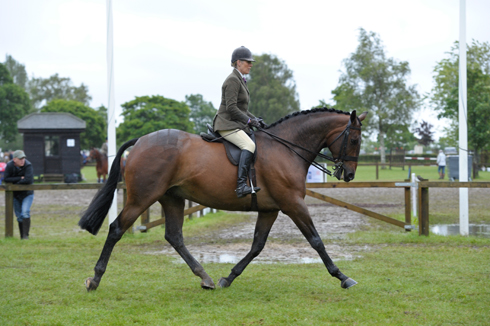Q: “My 13-year-old, 16.2hh part-bred TB never seems to gain weight. To compound the problem, he is very sensitive and barley, sugar beet and conditioning cubes all bring him out in lumps.
“He seems well in himself, but you can see his backbone and he has no covering on his quarters – I compete in dressage competitions with him but he looks more like a racehorse.
“At the moment he is on Alfa-A and horse and pony nuts, and while these do not prompt a skin reaction, the weight is still a problem. Can you help?”
Christine Smy, an independent nutritionist, answers: “Urticaria, which manifests itself as lumps under the skin and is also known as ‘feed bumps’, ‘protein lumps’ and even ‘humour spots’, is thought to be related to high-protein products and is often associated with wheat and barley.
“Since almost all mixes and cubes contain cereals and cereal by-products, finding a suitable concentrate for your horse may be difficult. There are a couple of products on the market that are designed for horses with allergies, but these tend to be fibre-based with low energy – possibly not the weight-gain feed you are looking for.
“For body and coat condition, feed soya or corn oil, ideally unprocessed, from a feed merchant. Start with a couple of tablespoons, two or three times a day, and work up to half a pint daily, split between feeds.
“Oil is energy-dense, with over two-and-a-half times more energy than the same weight of cereal. It is non-heating, is very palatable and is easily digested and absorbed but must be introduced slowly.
“For muscle development, feed protein supplements, avoiding those containing cereals. Soya bean meal is a first-rate protein source, providing essential amino acids to promote muscle formation.
“Milk is another excellent protein source. Some products contain milk pellets specifically for horses, so stick to these, following the manufacturer’s advice. If the horse is worked in a correct outline, you should see an improvement in muscle development in a few weeks.
“In humans, psychological factors have been found to contribute to urticaria and there may be a similar link in horses. Try to establish whether the animal has been under any stress, as this can affecting gut efficiency and the manufacture of B vitamins. Feeding live yeast or probiotics can rectify problems in this area.
“Any horse which is failing to gain weight should be examined by the vet for signs of worm damage. Your vet will also be able to help you compile the ideal worming plan for the horse.”
| Click here to subscribe to HORSE magazine, which is packed with horsecare features every month |




